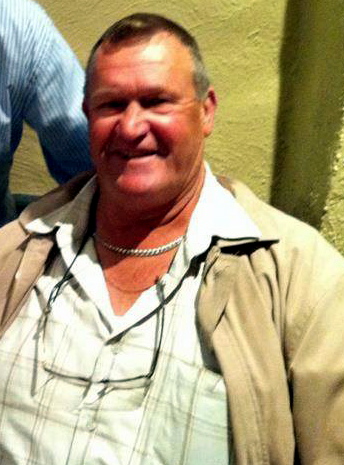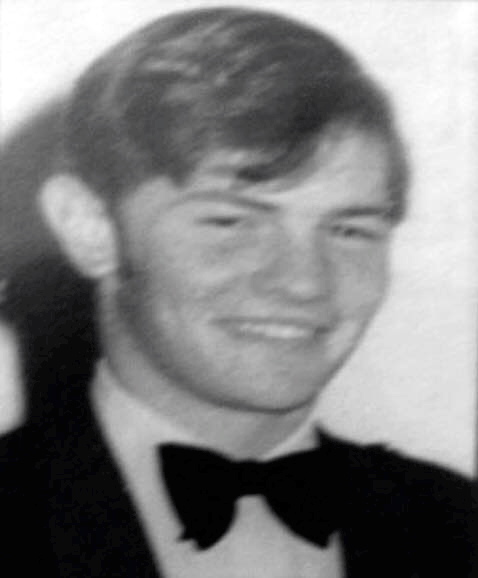Donald Gerard STEWART
Donald Gerard STEWART
( late of Potts Point )
New South Wales Police Force
Service # 1902
[alert_yellow]Regd. # 7194[/alert_yellow]
Previous Service with NSWPF: From 17 January 1949 to 31 January 1951
= 2 years Service – Resigned
Rank: Probationary Constable – appointed 17 January 1949?
Stations: ?
Service 2: From ? ? pre March 1952 to 11 September 1959
= 7+ years Service
Rank: Probationary Constable – appointed 10 March 1952 ( 1 month )
Constable – appointed 10 April 1952
Constable 1st Class – appointed 10 April 1958
Resigned 11 September 1959 = 7+ years Service / Total of 9 years Service
Stations: 10 Division ( GD’s ) from 10 March 1952,
10 Division – Bondi – Outfit cyclist from 15 July 1952,
10 Division – Vaucluse – Outfit cyclist from 15 September 1952,
C.I.B. – Court Staff – Probation period from 21 February 1955,
C.I.B. – Court Staff – Permanent from 21 August 1955
No other Stn’s recorded on his Service Card. It is expected he remained as Court Staff until his resignation as of 11 September 1959
Awards: ? nothing found on It’s An Honour
Born: 25 November 1928
Died on: Thursday 14 July 2016 at St Vincent’s Hospital, Sydney
Cause: Heart attack during the previous week
Age: 87
Funeral date: ?TBA
Funeral location: Eastern Suburbs Crematorium
Buried at: Cremated
Memorial at: ?
[alert_yellow]DON is NOT mentioned on the Police Wall of Remembrance[/alert_yellow] *NEED MORE INFO
[divider_dotted]
Funeral location: ?TBA
[divider_dotted]
FURTHER INFORMATION IS NEEDED ABOUT THIS PERSON, THEIR LIFE, THEIR CAREER AND THEIR DEATH.
PLEASE SEND PHOTOS AND INFORMATION TO Cal
[divider_dotted]
May you forever Rest In Peace.
[divider_dotted]
RECORDS:
Don joined NSWPF twice. 1949 – 1951 & 1952 – 1959.
Prior to joining NSWPF, he was a Cadet journalist, Clerk, Salesman, P.M.G. Lines labourer, Truck Driver then joined NSWPF. He was Presbyterian.
Prior to joining NSWPF, he held the School Intermediate Certificate. He gained his Leaving Certificate – Matriculation Standard after attending evening classes in 1954 whilst in the Police Force.
Upon joining NSWPF pre March 1952, Don was described as being 5′ 9.5″ tall, 12st 4 lb in weight, blue eyes, brown hair with a medium complexion. He was a Native of Manly, NSW, and was Single. He later married on the 20 March 1952.
He held the Bronze Medallion in Life Saving and was Approved as a motor cyclist on the 6 May 1952.
On 21 August 1956 he passed his Constable 1st Class examination.
On 28 August 1959 ( a couple of weeks prior to finishing with NSWPF ) he was “Highly commended on success at being admitted as Barrister-at-Law of the Supreme Court of New South Wales.
That entry, made on his NSWPF Service Register, was endorsed C.J.D. C. of P. P59/48661/7194
C.J.D. would be Colin J. DELANEY ( Commissioner of Police ), C. of P. would be Commissioner of Police. P59 ( the year ), 48661 ( file number ? ), 7194 – Don’s Registered #.
[divider_dotted]
Former judge, corruption fighter Donald Stewart dies aged 87
- THE AUSTRALIAN
- 12:05PM JULY 14, 2016
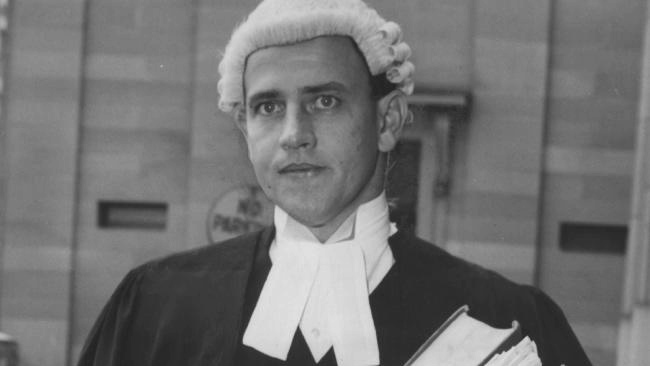
Donald Stewart, a former judge and corruption fighter, has died at the age of 87.
Mr Stewart, who started his career as a police officer, went on to become a barrister, judge of the NSW District and Supreme Courts, a royal commissioner and the first chairman of the National Crime Authority, a forerunner of the Australian Crime Commission.
His 1981 royal commission into drug trafficking, which had originally been scheduled to run for four years, had its term extended for a year. It led to the arrest of several crime figures.
That royal commission also investigated illegally obtained material known at the time as the “NSW police tapes”, which led to the investigation of former High Court judge Lionel Murphy.
Mr Stewart’s autobiography, Recollections of an Unreasonable Man, was launched in 2007 by former prime minister Bob Hawke who recognised his courage and independence in fighting organised crime.
Mr Hawke had appointed Mr Stewart to chair the National Crime Authority and later appointed him to the position of resource assessment commissioner.
At the launch of Mr Stewart’s autobiography, Mr Hawke had described the former judge as the most impressive man he had encountered in public life.
Just before his retirement from the NCA in 1989, Mr Stewart expressed concern at the continuing level of corruption in society and within the police.
At the launch of his autobiography, the former judge described the abolition of the Resource Assessment Commission as “entirely wrong”.
“I am afraid that people are sticking their heads in the sand and that’s all that will be left — sand — if we keep going the way we are going,” he said.
[divider_dotted]
Donald Stewart, judge and founding chairman of National Crime Authority
-
Jennifer Cooke
Donald Gerard Stewart, policeman, barrister, judge, royal commissioner, and founding chairman of the National Crime Authority (NCA) helped make history in several fields. It was a feat that even in his “wildest dreams” was not apparent to the young surf lifesaver and rugby fanatic who met the love of his life on Manly Beach.
He died, aged 87, following a cardiac arrest last week.
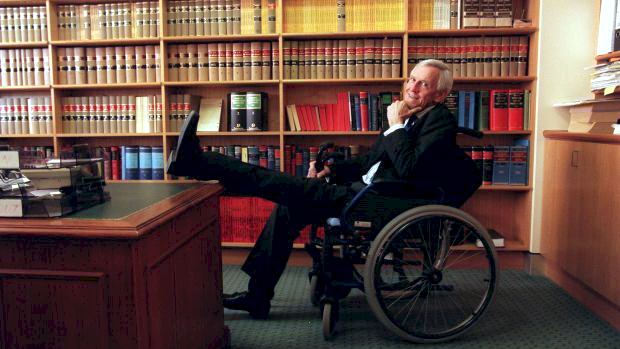
Self-described as a “footloose” judge, he returned to work at age 70 “back from the dead” despite the loss of both feet in a medical emergency caused by the intersection of septicaemia with blood clots thrown from an aortic porcine heart valve.
He said at the time he wanted to “show other people with disabilities that even though old, like me, if you really try, you can usually make it”.
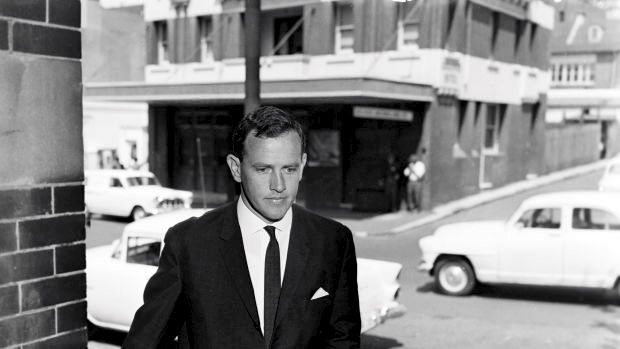
The younger child of a menswear shop owner on The Corso and a bookkeeper, young Don grew up in the then insular peninsula of Manly, a product of the Presbyterian ethic of honesty. He became the man of the family at 14 when his father’s heart finally failed in 1942. He was also with his mother when she died aged 83.
Between 1941 and 1946 he attended Sydney Boys High and wrote later that he gave the headmaster, Mr Jas H. Killop, referred to by boys as “the boss”, many an occasion for both justice and mercy on the fatherless boy who maintained he did not start the “unseemly brawl in a rugby match with our rivals Fort Street”, which attracted his first unwanted glare of publicity. “The boss” also forgave his running away from school with a mate from Manly to go mining at Wallerawang, near Lithgow at one point.

He left school without passing the Leaving Certificate and after a very short stint as a travelling salesman in country NSW, and no inclination at that point to follow his mother’s suggestion of a career in law, decided to give journalism “a go”.
But after a nepotistic introduction to someone at Consolidated Press, then headed by Sir Frank Packer, he earned a paltry two pounds a week working in the sport section of the Daily and Sunday Telegraph newspapers among iconic sports writing peers including Hugh Dash, Alan Hulls, Keith Robbins and his fellow high school colleague, Phil Tressider.
One day when he was 21, the lifesaver at the North Steyne Surf Live Saving Club happened upon an elfin young woman sitting on the sand tending a seagull with an injured wing. The daughter of a wealthy family from Louisana, 27-year-old Maybelle, had been working with the Red Cross in London and had recently brought out a group of displaced orphans to Sydney after World War II.
It was love at first sight for them both. Stewart married his “southern belle” in 1949 and an inspiring partnership began that would last six decades until her death from Alzheimer’s disease in 2009.
After his pit stop in journalism, Stewart decided to be a police officer but after many experiences in the 1940s and 1950s – and at the urging of Maybelle – he studied law and emerged in 1960 with a law degree. Seven years later he obtained his Master of Laws.
Ten years as a barrister led to his appointment as a District Court judge from 1977 to 1981. But in 1981, amid much controversy and acrimony from the then Chief Justice Sir Laurence Street, Stewart was elevated to Supreme Court judge status to head a royal commission into drug trafficking jointly established by the NSW and federal governments.
This three-year inquiry led to the detailed unmasking of the “Mr Asia” drug syndicate and a ruthless world of murder, corruption and organised crime on a scale never seen before in Australia. Another reference extended the commission’s scope into the dealings of the notorious Nugan Hand Bank and then “The Age Tapes” and its revelations of deep-seated corruption involving the NSW Police Force.
In 1984 he was appointed the inaugural chairman of the National Crime Authority, which resulted in the jailing of several organised crime bosses, chief of whom was the Kings Cross businessman, Abe Saffron, who was sentenced to three years in jail for tax evasion.
For some years Don and Maybelle were the subject of death threats and their home was littered with panic buttons linked to police central command under the then-helm of Andrew Scipione.
Five years heading the often-controversial NCA was enough and Stewart turned his attention to the environment and conservation after being appointed commissioner of Australia’s first ever Resource Assessment Commission, which made recommendations in 1994 aimed at protecting the country’s environment.
For a man who listened to many “tall tales” from defendants and royal commission witnesses before him, his tallest was often recounted by Maybelle about the jagged scar on one wrist. He boasted to her that it was a “war wound”. But she found out later from his mother that he got cut when he accidentally smashed her favourite custard bowl.
They both wanted children but sadly several miscarriages and the stillbirth of a daughter they named Elizabeth ended that dream.
While he could often be seen as difficult when fiercely-held beliefs were challenged or sub-standard arguments didn’t pass the test, he deliberately called his autobiography, published in 2007, Recollections of an Unreasonable Man: From the Beat to the Bench. This was more than a nod to the George Bernard Shaw quote than a self-definition: “The reasonable man adapts himself to the world: the unreasonable one persists in trying to adapt the world to himself. Therefore all progress depends on the unreasonable man.”
He gave and inspired great loyalty among many of those who had worked with him in his various guises – even friends from Manly Public School with whom he remained in touch over more than seven decades. One sitting NSW Supreme Court justice spent every Sunday night he was in town, visiting the retired judge for more than two decades.
Stewart has had more than a nodding acquaintance with the intensive care unit of St Vincent’s Hospital over numerous cardiovascular issues and where he spent a week before his death.
He sold his much-loved four-storey, panic button-studded house in Potts Point to former Prime Minister Paul Keating in 1999 after his most serious near-death experience when he was in in intensive care for three weeks after what he termed the “crook chook” chicken sandwich.
He collapsed at his home in September 1998 a few days after eating the sandwich and only eight weeks after receiving his new porcine heart valve. But septicaemia believed to have been caused by the bacterium salmonella typhimurium, apparently from the poorly-cooked chicken, caused most of his major organs to fail. It also lodged in the heart valve which threw off infective clots that lodged in his feet and blocked the blood supply, turning them gangrenous. He survived the ordeal with three weeks in “the dead zone” as he put it, his wife distraught and his obituary half-penned.
He became one of only a handful of people reported worldwide to survive a salmonella-infected artificial aortic valve with a replacement aortic valve and the only one in Australia at that time.
It was a standing joke that he survived only because the obituary was never completed.
He returned to the bench as an acting District Court judge for another four years until 2003 when he was declared “statutorily senile”, as all judges are, at age 75.
He is survived by many staunch friends. His older sister Peggy died last year. A funeral service is expected to be held at Eastern Suburbs Crematorium next week with a separate memorial service in Sydney also next week at a time to be advertised.
Jennifer Cooke
[divider_dotted]
Corruption fighter, judge Donald Stewart exposed ‘Mr Asia’ syndicate
- The Australian
Over many decades, Donald Stewart devoted his no-nonsense fine mind, understanding of human nature and personal courage to pursuing a “hatred of corruption”.
The man who started out as a young police officer on the streets of post-war Sydney and became a barrister, judge, royal commissioner and inaugural chairman of the National Crime Authority, died yesterday, aged 87.
Stewart was best known as a fighter against organised crime, in particular as head of the 1981 royal commission into drug trafficking that exposed the notorious “Mr Asia” syndicate.
That inquiry helped solve a string of murders, and led to a conviction for the murderer of Griffith anti-drugs campaigner Don Mackay.
The former judge of the NSW District and Supreme courts also headed a royal commission into the Nugan Hand Bank scam. In the mid-1980s, he was the royal commissioner appointed to investigate unauthorised police telephone tapping and the scandal of illegally obtained “NSW police tapes”.
While the phone-tap inquiry kickstarted a much-publicised investigation into former High Court judge Lionel Murphy, its broader impact was to help overturn a police culture of flagrant disregard for rights with the introduction of transparency and police eavesdropping based on proper cause.
In 1984, the Hawke government appointed Stewart the first head of the National Crime Authority, the forerunner of the Australian Crime Commission. Stewart also chaired Bob Hawke’s Resources Assessment Commission.
At the time of releasing his 2007 memoir Recollections of an Unreasonable Man, Stewart remarked on how the NCA under his leadership adopted what it called “The Al Capone Methodology” to prosecute Sydney crime identity Abe Saffron. With the failure of traditional methods to pursue Saffron’s ill-gotten income, in part because of Saffron’s links to NSW police, Stewart oversaw a team of accountants who successfully mounted a case to charge Saffron with tax evasion.
Saffron served two years in jail. He was so bitter towards Stewart that he reportedly solicited a fellow inmate to “kill” the NCA chief, although the man was convicted of another murder before getting the chance.
Stewart grew up in Manly. He was a NSW junior breaststroke champion and surf lifesaver before entering the NSW police force. Repelled by the bribery, theft and forced confessions he witnessed among senior officers, he realised his only way to remain independent and confront such corruption was to leave.
He studied law and became a barrister. In 1977, he was appointed a judge of the NSW District Court, and later the NSW Supreme Court.
Often a contrarian, Stewart believed the charging of police in recent years for their roles in organised crime was not proof of success but that corruption was deep-seated and flourishing. He believed a zero-tolerance policy that criminalised hard drugs was not working, and more consideration should be given to finding medical solutions.
Stewart was devoted to his wife, Maybelle, who predeceased him. The couple had no children, despite their early hopes.
Former Labor prime minister Bob Hawke told The Australian he was sad to hear of “the passing of the very fine man, Justice Donald Stewart”.
He said Stewart’s autobiography, which he had the honour of launching, was “not a terribly apt title for one of the most reasonable and competent men I have ever known”.
Stewart died in Sydney’s St Vincent’s Hospital after suffering a cardiac arrest last week.
[divider_dotted]
